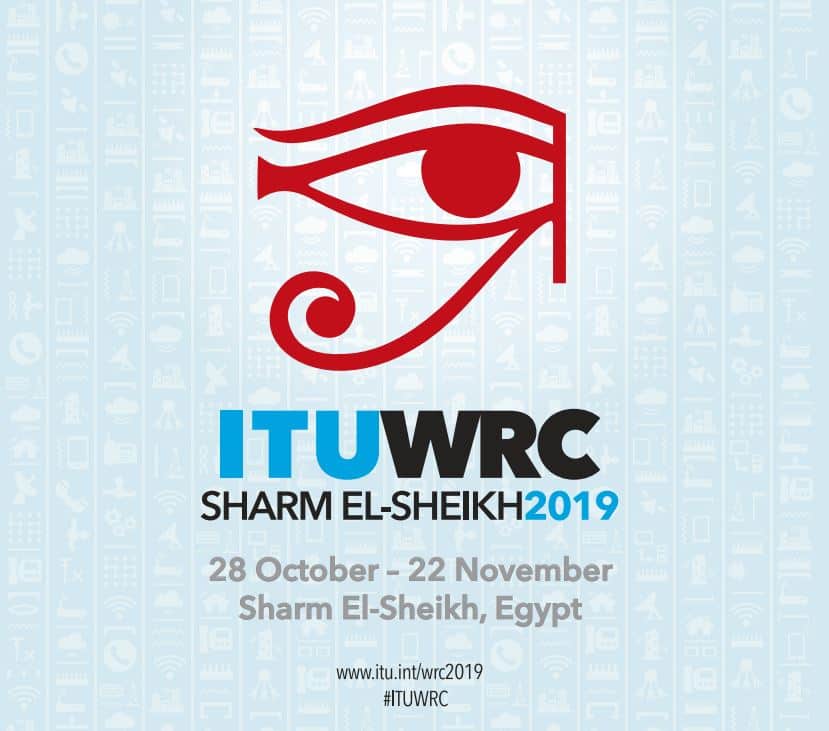 The IARU has issued its report on Week 3 of the 2019 World Radiocommunication Conference being held in Sharm el-Sheikh, Egypt from October 28 to November 22, 2019.
The IARU has issued its report on Week 3 of the 2019 World Radiocommunication Conference being held in Sharm el-Sheikh, Egypt from October 28 to November 22, 2019.
With just 3-1/2 days left for substantive work – the final session of the Plenary to approve texts to be included in the Final Acts is scheduled to end at noon Thursday, November 21 – delegates at WRC-19 face a daunting workload as the conferees try to reach consensus on several remaining issues including the agenda for the next WRC.
Future agenda items: As of now, no choices have been made as to which of more than three dozen proposed topics will be placed on the WRC-23 agenda. Each of the proposed agenda items would require studies to be conducted in the 2020-2023 timeframe, but ITU resources will not accommodate more than about half. Some face strong opposition and others remain ill-defined even at this late stage of the conference. The responsible committee is scheduled to complete its work in just one more day. It will be a long day.
Short Duration Satellites: There is still no agreement on how to protect existing services and uses of the uplink frequency band proposed for telemetry, tracking and command of these “simple” satellites.
5725-5850 MHz: This part of the amateur secondary allocation, which includes an amateur-satellite downlink at 5830-5850 MHz, is the subject of an unresolved conflict over parameters for wireless access systems including radio local area networks.
Frequencies above 275 GHz: This upper frequency range is not allocated but several bands are identified for passive (receive-only) use and administrations are encouraged to protect them from harmful interference. With that in mind, WRC-19 has identified other bands above 275 GHz for the implementation of land mobile and fixed service applications. The use of these bands for applications in other services, including amateur experimentation, is not precluded.
50 MHz in Region 1: The compromise agreement reported last week (see the IARU news release dated 10 November) survived review at the Working Group and Committee levels and awaits approval in Plenary.
With the 50 MHz issue essentially settled the IARU team is devoting most of its energy to explaining why the proposed agenda item for 1240-1300 MHz described in last week’s release is unnecessary and undesirable.
While IARU President Tim Ellam, VE6SH/G4HUA, left the conference at the end of the second week he is still a visible presence as a six-minute video interview is replayed on monitors scattered around the halls of the conference center. See it for yourself at
[youtube https://www.youtube.com/watch?v=gqphjb0Cds4]
Source: IARU Press Release available on the new ARRL-IARU email group. You can join at https://groups.arrl.org/g/ARRL-IARU/
